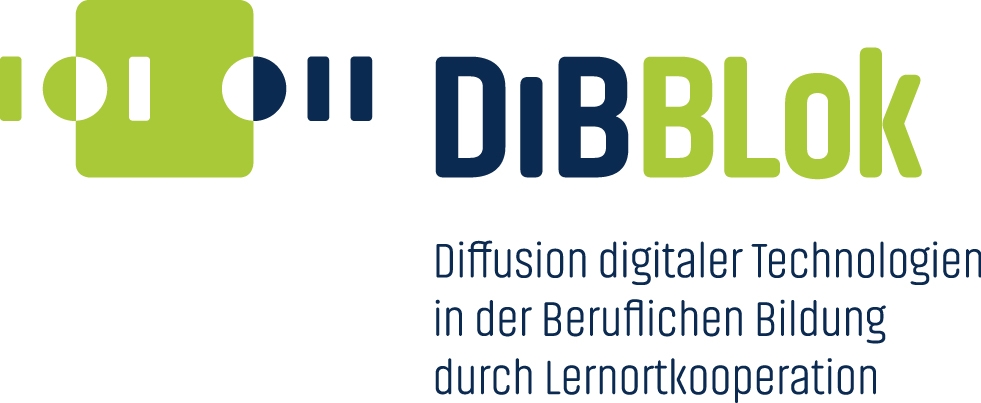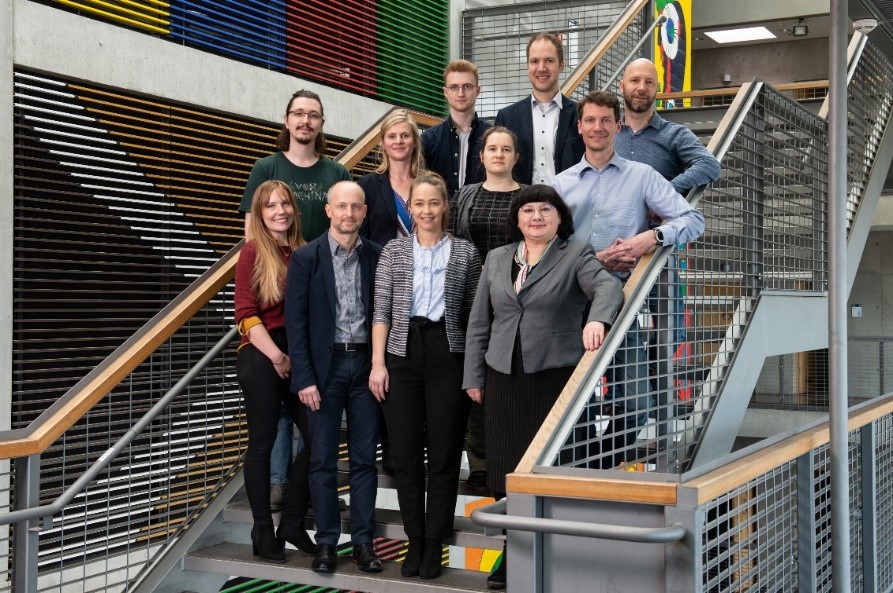Dear Ms. Preissler, dear Ms. Jörke, roughly a year ago the DiBBLok project was launched, which examines the digital change in vocational training at the interface between the training company and vocational school. Looking into the future: What could the ideal digital learning center cooperation of tomorrow look like?
Anzhela Preissler: The ideal digital learning center cooperation of the future spans a network of alliances and organizations that are available to vocational schools and training companies as cooperation partners - for example, inter-company training facilities run by chambers of commerce or extra-company training providers. The understanding of cooperation has developed from a more pragmatic approach to an understanding based on education theory. The individual players not only keep each other informed but also agree on the basic didactic concept and collaborate continuously throughout the entire vocational training period.
Desirée Jörke: In addition, the digital learning center is ideally realized via a web application. This is already possible, for example, for the online training certificate for dual training occupations "BLok". Ideally, all parties involved - from trainees and apprentices to the training management and also vocational school teachers and cooperation partners - will have access to this digital tool, regardless of time and location. Information, messages, teaching content and artifacts can be exchanged via the web application and the individual development status of the trainees can be represented via a development portfolio. A continuous use creates a close interlocking of the learning locations "vocational school" and "training company" and enables the coordinated didactics. The quality of vocational training increases and the prospective skilled workers acquire additional skills that go beyond the actual training occupation.
During the Corona pandemic, we are realizing how important the use of digital technologies are in the education system - especially in connecting vocational schools and training companies and the actors involved (trainees, apprentices, teachers). Necessity is certainly the mother of invention, so that digital learning and teaching is basically possible, but what structural challenges are currently becoming apparent in digital vocational training?
Anzhela Preissler: Structurally, the greatest challenges lie in the technical infrastructure of small and medium-sized enterprises, especially in many vocational schools. Often the necessary hardware, software or simply the WIFI is missing. Often the regionally available network coverage is also insufficient. Furthermore, the use of digital tools requires additional time as well as personnel and financial resources. It is often simply not enough to use digital media, while, at the same time, sticking to traditional teaching methods and learning concepts. The roles of the actors involved are changing as a result of digital learning center cooperation. For example from teacher to learning guide, to moderator of the learning process. In addition to technical equipment, further media-didactic training for vocational school teachers and trainers is therefore particularly important. Incentives, such as the assumption of costs by the chamber, could help vocational schools and training companies to get more involved in the "risk" of digital learning.
For example, what role do you think (regionally anchored) digital learning and digital platforms will play in the vocational training of the future?
Desirée Jörke: Digital learning platforms or learning (management) systems will certainly be a central aspect of digital vocational training in the future. As a trainee, I will be able to access the content of vocational training no matter the time and location, depending on my learning status and learning pace. Different media - such as text, image, audio and video material - can be combined with each other. This increases the attractiveness of the training - and it adapts more closely to the needs of the users.
How does the current Covid-19 situation affect the research project DiBBLok and your further research work?
Desirée Jörke: Due to contact restrictions, it is necessary to adapt our field research methods. We adapt to the needs of the training companies we want to investigate - and conduct interviews online, for example, or offer workshops only in small groups. In this way, we investigate which factors promote or inhibit the digital learning center at the organizational and individual level. Our thesis is that the respective management system and related processes have an influence on the implementation of the digital learning center, as they are the frame of reference for changes in the respective educational location.
Anzhela Preissler: In principle, we are only just beginning to actually make full use of the advantages of digital media in vocational training. Dual vocational training is an internationally recognized system that has grown over decades and has proven routines based on classroom practice. Digital media offer medium-sized companies in particular new opportunities for exchange, networking and individual training. In a further research project - the "Zentrum digitale Arbeit" (Centre for Digital Work) - in cooperation with the Projektträger Arbeit und Leben Sachsen e. V. (Project Management Agency Work and Life Saxony), Leipzig University, the HTWK Leipzig and the ATB Arbeit, Technik und Bildung gGmbH (ATB Work, Technology and Education), we are bundling research and experience knowledge on digital and demographic change in the labor market in a digital knowledge pool.
What are the next steps in the DiBBLok project?
Desirée Jörke: We are just starting the qualitative case studies to examine our research theses on macro, meso and micro levels. For this purpose we have identified training companies that are considered "best practice" in terms of their degree of digitization. Basically, we assume that the use of digital media supports the learning and exchange processes of learning center cooperation to a large extent but does not replace personal communication and cooperation. For the actors involved, digital teaching and learning means getting involved in new ways of networking, building basic digital skills and motivating them to become actively involved in the cooperation. We reflect and evaluate these assumptions in the following interviews. We are also beginning to publish our research results to date.

